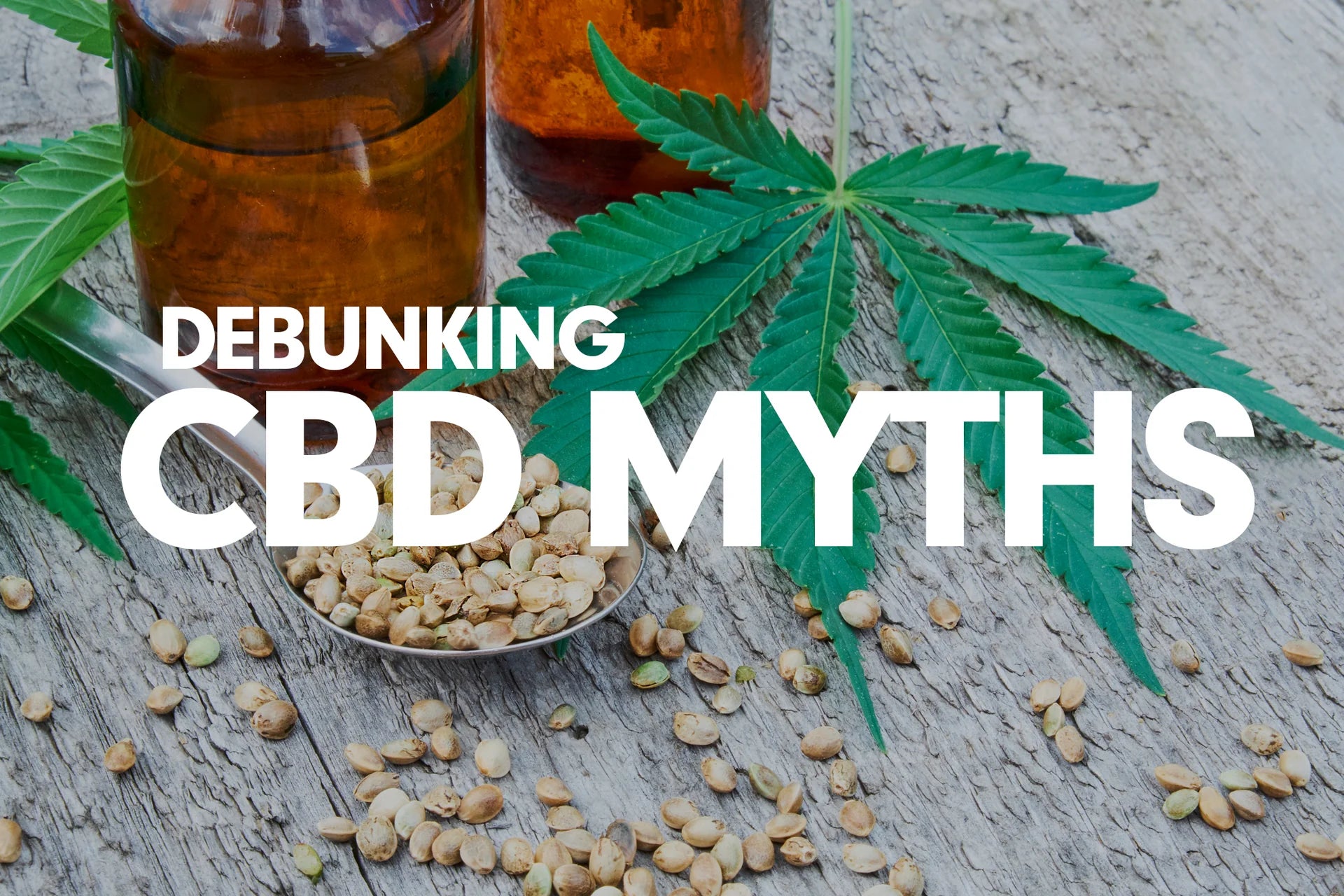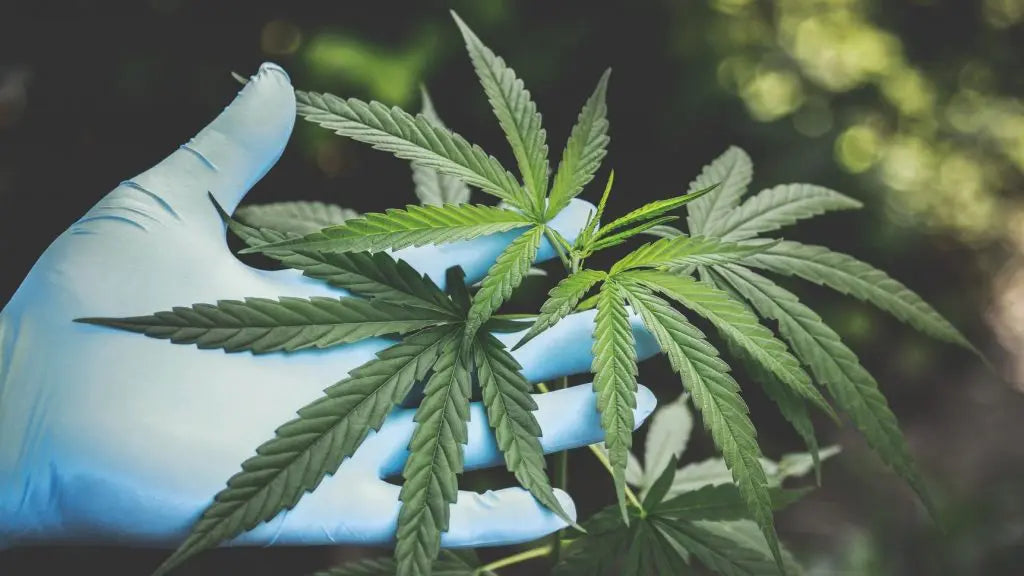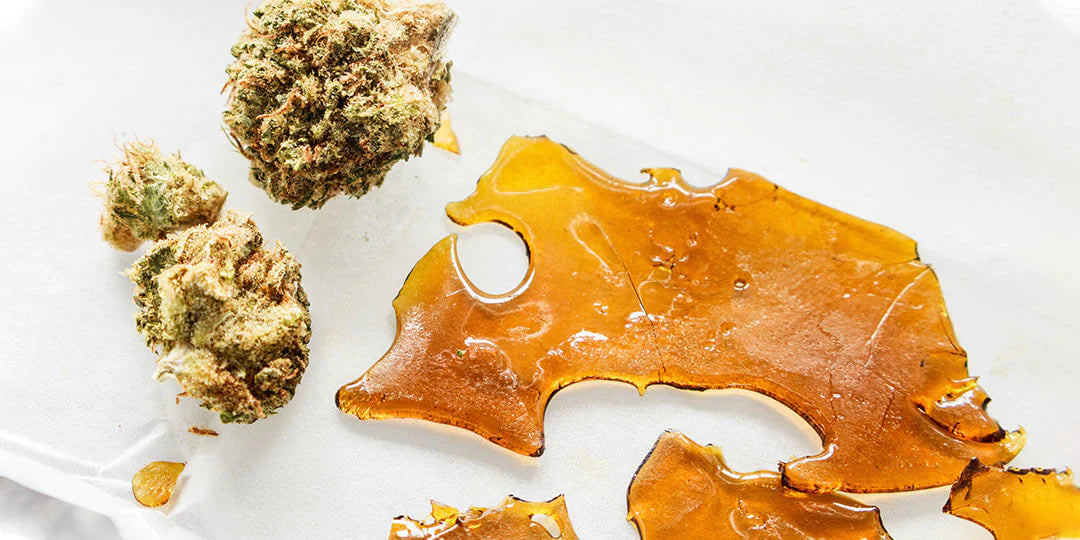
Myths & Reality Regarding CBD
CBD, short for cannabidiol, has become a buzzword in health and wellness circles in recent years. With its rise in popularity, numerous myths and misconceptions about CBD have emerged. In this comprehensive guide, we will explore some of the most common myths surrounding CBD and separate fact from fiction.
Myth 1: CBD Gets You High
One of the most persistent myths about CBD is that it gets you high, just like its close relative, THC (tetrahydrocannabinol). This misconception stems from the fact that both CBD and THC are compounds found in the cannabis plant. However, the reality is quite different.
Reality: CBD is non-psychoactive, meaning it does not produce a "high" or alter your state of mind. It is THC that is responsible for the euphoric effects commonly associated with cannabis use. CBD can actually counteract some of the psychoactive effects of THC when the two are consumed together.
Myth 2: CBD is Illegal Everywhere
Another common myth is that CBD is illegal and can get you into legal trouble, regardless of where you live.
Reality: The legal status of CBD varies from place to place. In the United States, for example, the 2018 Farm Bill legalized the production and sale of hemp-derived CBD products containing less than 0.3% THC at the federal level. However, individual states have their own regulations, so it's essential to check the laws in your specific location. In many other countries, CBD is also legal to some extent, but the rules can differ significantly.
Myth 3: All CBD Products are the Same
People often assume that all CBD products are identical, regardless of the brand or source. This can lead to misconceptions about quality and effectiveness.
Reality: CBD products can vary significantly in terms of quality, potency, and formulation. Factors like the source of the hemp, extraction methods, and the presence of third-party lab testing can all impact the quality of CBD products. It's crucial to do your research and choose reputable brands that provide transparent information about their products.
Myth 4: CBD Works Instantly
Another common belief is that CBD delivers immediate results, providing instant relief for various ailments.
Reality: The effects of CBD can vary depending on how it is consumed. When taken sublingually (under the tongue) as a tincture, CBD can start to take effect within 15-30 minutes. However, for some individuals, it may take longer to notice the effects. Edibles and capsules, on the other hand, may take longer to kick in because they need to pass through the digestive system first. It's essential to be patient and give CBD time to work its magic.
Myth 5: CBD is a Cure-All
CBD has been marketed as a miracle cure for a wide range of health conditions, leading to unrealistic expectations.
Reality: While CBD has shown promise in various preclinical studies and anecdotal reports for managing certain symptoms, it is not a one-size-fits-all solution. Its efficacy can vary depending on the individual and the specific condition being addressed. CBD should be viewed as a complementary or alternative wellness option rather than a guaranteed cure for all ailments.
Myth 6: More CBD is Always Better
Some people believe that taking larger doses of CBD will yield better results, but this can lead to unnecessary expenses and potential side effects.
Reality: The optimal CBD dosage varies from person to person and depends on factors like body weight, metabolism, and the specific condition being treated. Starting with a lower dose and gradually increasing it until you achieve the desired effect is a more practical approach. Taking excessively high doses may lead to diminishing returns and increased tolerance without providing additional benefits.
Myth 7: CBD Has No Side Effects
A common misconception is that CBD is entirely free of side effects, making it entirely risk-free.
Reality: While CBD is generally considered safe and well-tolerated, it can have side effects in some individuals. Common side effects include dry mouth, dizziness, changes in appetite, and diarrhea. These side effects are typically mild and temporary but should be considered when using CBD, especially in higher doses.
Myth 8: All CBD Products are Safe and Regulated
Many people assume that all CBD products on the market are safe and thoroughly regulated.
Reality: The CBD industry is still relatively new and lacks consistent regulation. This means that not all CBD products undergo the same rigorous quality control processes. It's crucial to research brands and look for products that have been tested by third-party laboratories to ensure they meet safety and potency standards.
Myth 9: CBD is Only for Adults
Another misconception is that CBD is exclusively for adults and not suitable for children or teenagers.
Reality: Some parents and healthcare professionals have explored the use of CBD for children with certain medical conditions. However, the use of CBD in minors should be closely supervised by a healthcare provider, and the appropriate dosage and product should be determined on a case-by-case basis.
Myth 10: CBD Can Replace Prescription Medications
Some individuals believe that CBD can entirely replace prescription medications, leading to a misunderstanding of its role in healthcare.
Reality: CBD should never be used as a substitute for prescribed medications without the guidance and supervision of a qualified healthcare professional. It can complement existing treatments or provide relief from certain symptoms, but it is not a replacement for all medical interventions.
Final Thoughts:
CBD is a promising compound with a growing body of research supporting its potential benefits. However, it's essential to separate myths from reality when exploring the world of CBD. Understanding the facts about CBD can help individuals make informed decisions about its use and ensure a safe and enjoyable experience. Always consult with a healthcare provider before starting any new wellness regimen, especially if you have underlying health concerns or are taking other medications.
When it comes to wholesale buying of CBD products, like those from D Squared WorldWide, it's crucial to keep the facts in mind. Ensure you're sourcing from reputable brands that provide transparency and third-party testing. Remember, not all CBD products are created equal, so do your research and choose quality over quantity to offer your customers the best in CBD wellness. Contact Us Now!
Reference:
- Armstrong, M., Litvan, I., Lang, A., Bak, T., Bhatia, K., Borroni, B., … & Weiner, W. (2013). Criteria for the diagnosis of corticobasal degeneration. Neurology, 80(5), 496-503. https://doi.org/10.1212/wnl.0b013e31827f0fd1
- Cash, M., Cunnane, K., Fan, C., & Romero‐Sandoval, E. (2020). Mapping cannabis potency in medical and recreational programs in the united states. Plos One, 15(3), e0230167. https://doi.org/10.1371/journal.pone.0230167
- Cox, R., Ardhuin, F., Dias, F., Autret, R., Beisiegel, N., Earlie, C., … & Weiss, R. (2020). Systematic review shows that work done by storm waves can be misinterpreted as tsunami-related because commonly used hydrodynamic equations are flawed. Frontiers in Marine Science, 7. https://doi.org/10.3389/fmars.2020.00004
- Hansen, J., Hansen, R., Petersen, T., Gustavsen, S., Oturai, A., Sellebjerg, F., … & Svendsen, K. (2021). The effect of cannabis-based medicine on neuropathic pain and spasticity in patients with multiple sclerosis and spinal cord injury: study protocol of a national multicenter double-blinded, placebo-controlled trial. Brain Sciences, 11(9), 1212. https://doi.org/10.3390/brainsci11091212
- Khan, F., Higgins, B., & Adonis, W. (2022). Saving or seizing the city: discursive formations in cape town, south africa. Sustainability, 14(3), 1376. https://doi.org/10.3390/su14031376
- Lee, K. and Hardy, D. (2021). Metabolic consequences of gestational cannabinoid exposure. International Journal of Molecular Sciences, 22(17), 9528. https://doi.org/10.3390/ijms22179528
- Oo, E., Saw, K., Htun, T., & Latt, Z. (2023). Motivational factors, attitudes, and knowledge about the cadaveric body donation program among body donors in myanmar. Anatomical Sciences Education, 16(5), 789-801. https://doi.org/10.1002/ase.2282
- Rocha, L., Frías-Soria, C., Ortiz, J., Auzmendi, J., & Lazarowski, A. (2020). Is cannabidiol a drug acting on unconventional targets to control drug‐resistant epilepsy?. Epilepsia Open, 5(1), 36-49. https://doi.org/10.1002/epi4.12376
- Ríos, G., Acurio, L., Jimbo, R., Cueva, V., Ríos, X., Zambrano, H., … & Cuesta, G. (2022). A pilot study on the use of low doses of cbd to control seizures in rare and severe forms of drug-resistant epilepsy. Life, 12(12), 2065. https://doi.org/10.3390/life12122065
- Viudez-Martínez, A., García-Gutiérrez, M., Medrano-Relinque, J., Navarrón, C., Navarrete, F., & Manzanares, J. (2018). Cannabidiol does not display drug abuse potential in mice behavior. Acta Pharmacologica Sinica, 40(3), 358-364. https://doi.org/10.1038/s41401-018-0032-8



